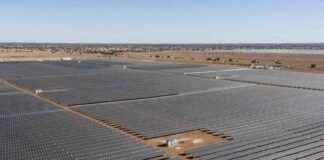Small-scale farmers in the global South are the most affected by the climate crisis. Despite this, they have shown great adaptability to changing climatic conditions through the transmission of knowledge within their families about agroecological food production. This adaptation is crucial in combating the climate crisis.
Industrial agriculture has a significant impact on the environment, contributing to a large percentage of greenhouse gas emissions. This includes emissions from activities such as deforestation, the use of fossil fuels for fertilizer production, and transportation of food. Industrial livestock farming also consumes a lot of energy and emits significant amounts of methane into the atmosphere, further exacerbating the climate crisis.
Small-scale farmers, thanks to the knowledge passed down through generations, can predict rainfall and droughts. However, they are now facing harder summers and drier soils due to the rapid increase in CO2 levels on Earth. The global average temperature has risen by 1.2 degrees Celsius since the industrial revolution, leading to extreme heatwaves in the global South.
In regions like the Central American Dry Corridor, small-scale farmers are implementing agroecological methods to mitigate the impacts of climate change. By growing diverse crops and incorporating livestock, using native and resilient seeds, managing water resources efficiently, and naturally controlling pests, these farmers are improving soil fertility and reducing erosion.
Studies conducted in Nicaragua, Honduras, and Guatemala have shown that agroecological methods lead to more fertile soil, increased moisture, and reduced erosion over time. These methods also result in lower crop losses compared to conventional agriculture. Farmers cultivating various maize varieties have shown greater resilience to the effects of the climate crisis.
In the Andean region, traditional knowledge is being increasingly recognized for its role in adapting to the global climate crisis. Andean communities have long faced climate extremes and fluctuations, with some farming at different altitudes throughout the year to grow their food. Indigenous territories and conservation areas in Brazil also contribute less to greenhouse gas emissions.
Composting is a widely used agroecological method that helps reduce the use of fertilizers and emissions of CO2, methane, and nitrous oxide. Organizations like RedBioCol in Colombia have successfully reused organic waste to produce high-quality fertilizer and biogas, reducing reliance on propane gas.
Challenges to these sustainable practices include the expansion of monocultures, migration from rural areas to cities, and disruptions to natural planting and harvesting cycles due to the climate crisis. Large organizations promoting climate-smart agriculture and public-private initiatives are competing with agroecological principles, suggesting that significant changes in industrial agriculture are not necessary to address global warming.
The Intergovernmental Panel on Climate Change (IPCC) emphasizes that without changing how food is produced and lands are managed globally, limiting the temperature increase to below 2 degrees Celsius compared to pre-industrial levels will be impossible. Embracing agroecological practices and supporting small-scale farmers is essential in combating the climate crisis and ensuring food security for future generations.

















